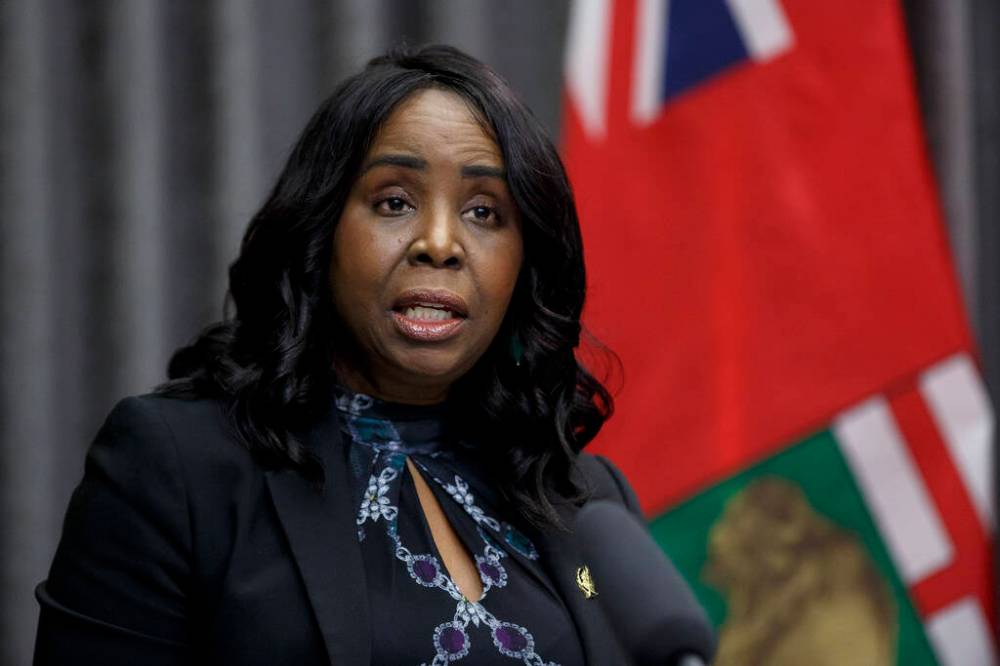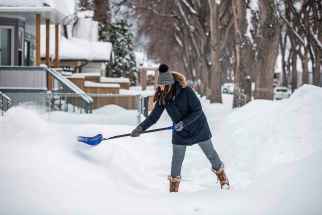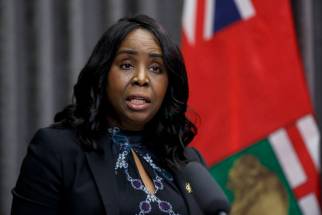Time to end foot-dragging on triage protocol
Read this article for free:
or
Already have an account? Log in here »
To continue reading, please subscribe:
Monthly Digital Subscription
$0 for the first 4 weeks*
- Enjoy unlimited reading on winnipegfreepress.com
- Read the E-Edition, our digital replica newspaper
- Access News Break, our award-winning app
- Play interactive puzzles
*No charge for 4 weeks then price increases to the regular rate of $19.00 plus GST every four weeks. Offer available to new and qualified returning subscribers only. Cancel any time.
Monthly Digital Subscription
$4.75/week*
- Enjoy unlimited reading on winnipegfreepress.com
- Read the E-Edition, our digital replica newspaper
- Access News Break, our award-winning app
- Play interactive puzzles
*Billed as $19 plus GST every four weeks. Cancel any time.
To continue reading, please subscribe:
Add Free Press access to your Brandon Sun subscription for only an additional
$1 for the first 4 weeks*
*Your next subscription payment will increase by $1.00 and you will be charged $16.99 plus GST for four weeks. After four weeks, your payment will increase to $23.99 plus GST every four weeks.
Read unlimited articles for free today:
or
Already have an account? Log in here »
Hey there, time traveller!
This article was published 18/01/2022 (1422 days ago), so information in it may no longer be current.
The Manitoba government has repeatedly downplayed the need for a triage protocol for critical care in treating COVID-19. But that was before Omicron. The extremely infectious nature of the latest variant is filling hospitals at an unsustainable rate, making it likely that life-and-death decisions about rationing care will soon be necessary in a province seemingly unprepared to oversee such decisions.
It’s unacceptable to leave these decisions solely in the hands of doctors and nurses at bedside. These medical professionals are aware it’s morally gut-wrenching and legally dangerous to deny help to critically ill patients, and they have repeatedly asked the Manitoba government for direction.
Provinces such as Quebec, Ontario and Alberta are way ahead in developing triage protocols to help their medical staff decide who gets treatment and what guides the decision.
But Manitoba officials have consistently sidestepped the issue. Four months ago, Health Minister Audrey Gordon offered this: “We will put in place all the systems and all the information that we believe the public needs to know about. If it’s triage at that time, we’ll certainly make that available.”

With respect to Ms. Gordon, it’s time. A looming tide of Omicron-related hospitalizations makes it urgent that Manitoba develop and make public a last-resort protocol that will prevail when the hospital system is unable to treat the number of incoming critically ill patients.
Manitoba could experience a quadrupling of its daily COVID-19 hospitalizations, according to modelling released last Friday by the Public Health Agency of Canada, which predicted Manitoba could soon face as many as 200 new hospitalizations daily.
For perspective on how the critical-care facilities can’t handle such a crush, consider that the daily average of new hospitalizations one month ago was 14. Last week, it had risen to a daily average of 42 in-patient admissions, with a peak of 58 reached on Jan. 10.
Doctors with front-line knowledge of the capabilities of Manitoba’s hospital system use such descriptives as “terrifying” and “impossible” to characterize the upcoming flood of COVID-19 sufferers seeking emergency care from a system already stretched to the point that patients are on stretchers in hallways, and some are shipped to hospitals hundreds of kilometres from their homes.
In the summer of 2021, the third wave of COVID-19 pushed Manitoba’s health-care system to the brink, and a total of 57 patients were shipped to hospitals in other provinces. Such good-neighbour help is likely not an option this time, as the ubiquitous spread of Omicron will mean other provinces will not have enough hospital beds for their own residents.
Unfortunately, it seems Manitoba’s protocol will need to be developed hastily. The process could be jump-started by examining resources such as the Canadian Triage Assessment Scale, and appraising the protocols in other jurisdictions would be instructive.
Unfortunately, it seems Manitoba’s protocol will need to be developed hastily. The process could be jump-started by examining resources such as the Canadian Triage Assessment Scale, and appraising the protocols in other jurisdictions would be instructive.
Manitoba will want to regard with caution the experiences of Alberta and Ontario, which ran into controversy with part of their protocols that recommends that when swamped by COVID-19 patients, doctors would assess whether to continue life-saving care based on a patient’s likelihood of living at least a year.
Before adopting such measure, Manitoba should weigh input from the Human Rights Triage Protocol Coalition, which earlier recommended the province must ensure equal access to emergency care regardless of factors such as age and disability.
Given the impending surge of COVID-19 patients into a system that’s already overwhelmed, development and release of the Manitoba protocol needs to be an urgent priority. In the race against Omicron, Omicron has a substantial head start.
History
Updated on Tuesday, January 18, 2022 8:52 PM CST: Fixes typo.
Updated on Tuesday, January 18, 2022 9:39 PM CST: Fixes typo.






